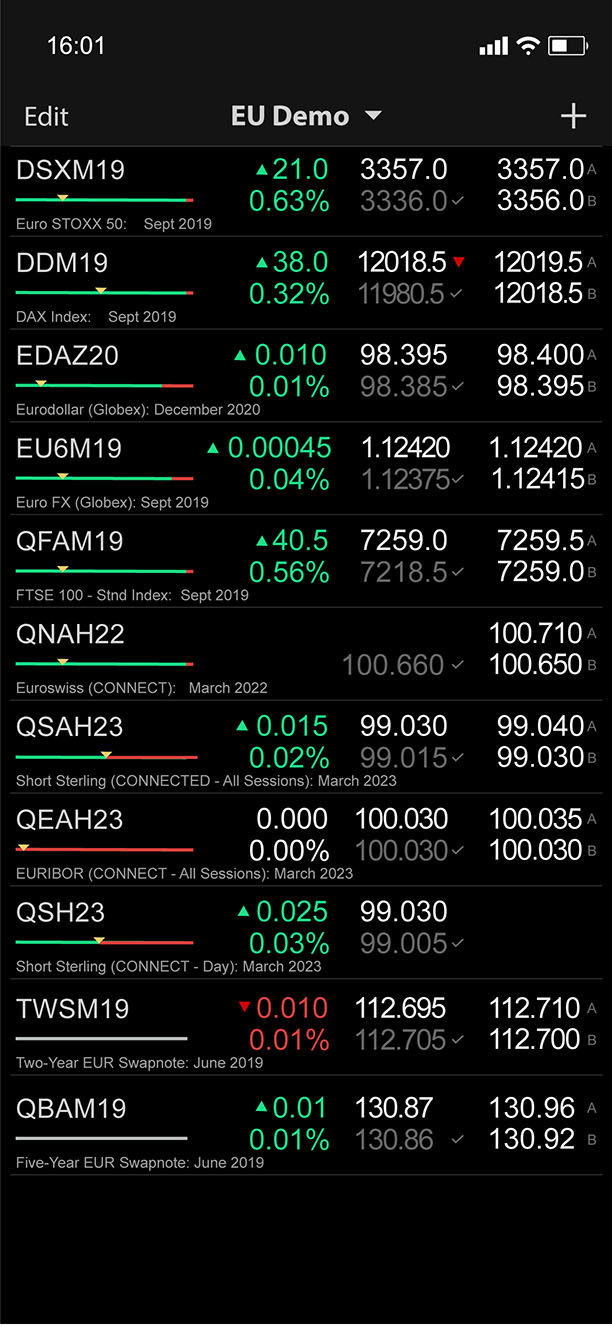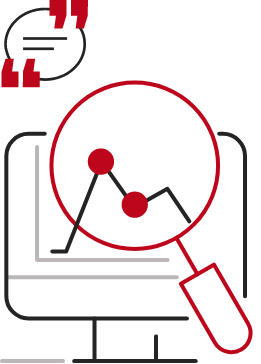
Trade Futures on Indices, Metals and FX:
Access Leading Futures Exchanges

Why TRADE FUTURES
with Tickmill?
Our no-frills futures trading gives our clients access to 5 globally regulated Futures exchanges: CME, CBOT, NYMEX, COMEX and EUREX.
- Fast reliable execution via robust centralised trading exchanges.
- Competitive commissions.
- No monthly minimum trading commission requirements.
- Low deposit requirement of $1,000 (or equivalent in another currency).
- Industry leading trading platforms & Free mobile app (multi-language).
- Tailored solutions for high volume traders.
Registered Accounts*
Awards
Employees Globally
Recognised Regulators
*Tickmill Group figures.




Our Competitive
Commissions
$1.30
$0.85
Here’s a glimpse of our top 5 futures. Check out all of the futures contracts that you can trade by clicking here.
| Exchange Code | Product | Currency | Contract Size | Tick Size | Tick Value | Trading Hours Exchange |
| CL | Crude Oil | USD | 1,000 barrels | 0.01 | $10 | 18:00 - 17:00 ET |
| ES | E-Mini S&P 500 | USD | 50 x Index | 0.25 | $12.50 | 18:00 - 16:15 16:30 - 17:00 ET |
| GE | Eurodollar | USD | 2,500$ x IMM Index | 0.0025 | $6.25 | 17:00 - 16:00 CT |
| GC | Gold 100 oz | USD | 100 ounces | 0.1 | $10 | 17:00 - 16:00 CT |
| ZN | US 10-Yr Note | USD | 100,000 USD | 1/64 point | $15.625 | 17:00 - 16:00 CT |
**Source data: this content has been derived from CME, COMEX, CBOT, NYMEX and EUREX exchanges as at 16/12/2020. These details are updated by the various Exchanges so for up to date information please check on Exchange websites. Tickmill UK Ltd will not accept any liability for contract specific information, this table will be updated on a periodic basis.
What are Futures?
Futures contracts are financial instruments that allow market participants to offset risk (hedge) or to assume the risk (speculate) of a price change of an asset over time.
A Futures contract is a legally binding agreement to trade a standardised asset on a specific date or during a specific period, using a product which is identical in terms of quality and quantity. Therefore, the only variable is the price.
The Futures exchanges guarantee every Futures contract so all trades that take place on the exchange will be honoured; thus, eliminating counterparty risk. Exchange traded Futures are cleared centrally which means the exchange becomes the buyer of every sold contract and the seller of every bought Futures. In turn, this greatly reduces the credit risk associated with defaults.


Although the futures market allows the exchange of products, there are other types of investors who also trade futures. Investors are actually speculating on the price of a product in the future and will profit based on the changes in price rather than taking delivery of the underlying product.
Although there are many examples of futures contracts solely focused on commodities, there are a huge range of futures contracts available; from stocks and shares to bonds and bitcoin!
As there is such a range of different investors, traders, hedgers etc, the futures market is relatively liquid with significant market movement.
How to Trade Futures
Unlike many traders and companies who seek to trade the asset itself, you’re able to speculate on the changes in price instead. If the price of the concerned asset rises, the futures contract will become more valuable. Should the price of the asset fall, then the futures contract will become less valuable.
